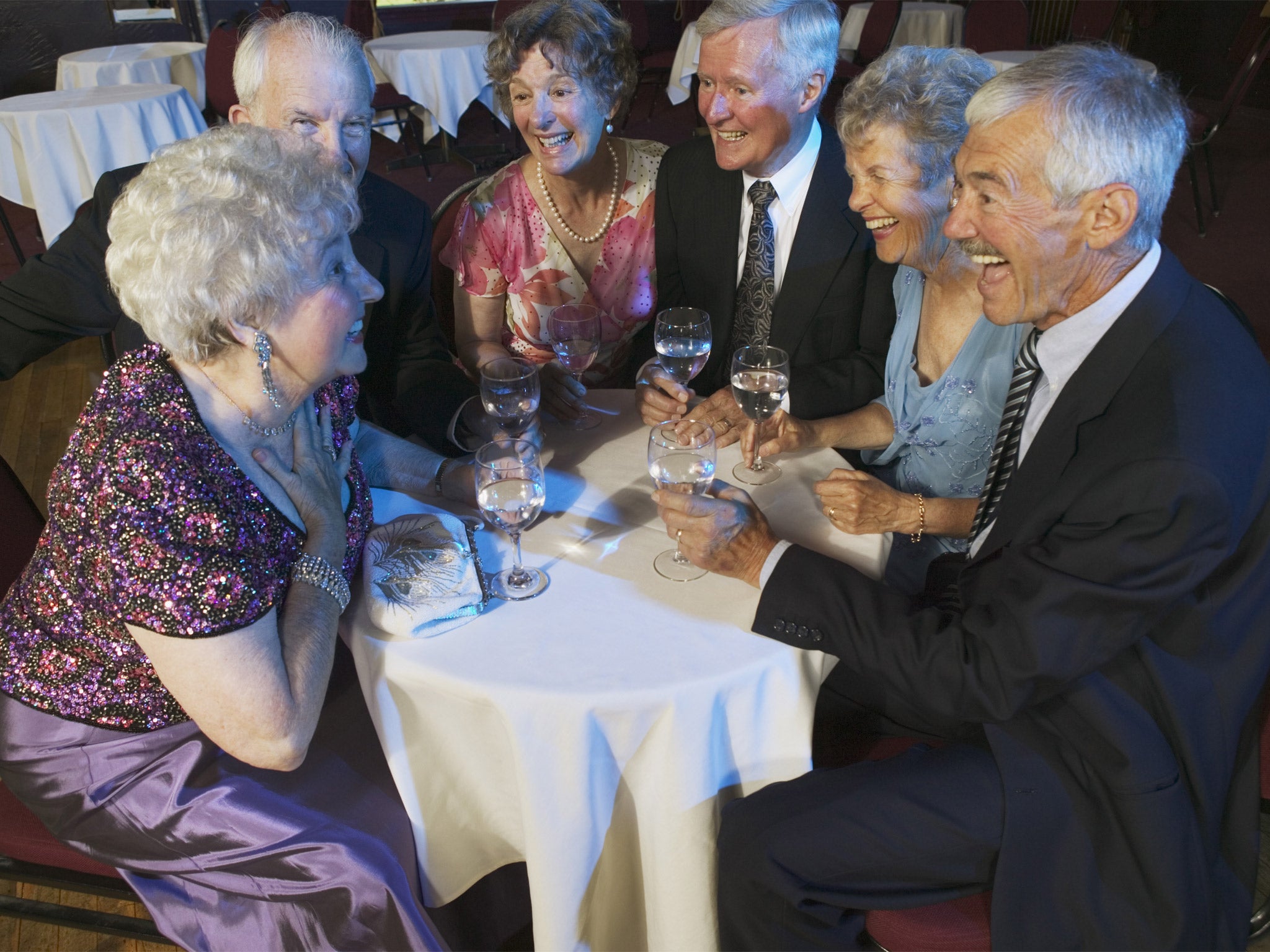Communities must be more fun for the elderly to combat loneliness, says Age UK
The report's recommendations will reduce the isolation associated with old age

A group of pensioners pile out of their local nightclub, say their goodbyes and hail a heavily-discounted taxi or passing electric pod to take them home, pausing only to relieve themselves at one of the many public conveniences arranged along the route.
It sounds like an unlikely scenario from the distant future, but these are the kind of innovations that will soon be needed in British cities to make them more elderly friendly, according to a report published today.
Conducted by the International Longevity Centre think-tank in association with the charity Age UK, it calls on the Government to make communities more “fun” for the elderly, arguing that this will reduce the loneliness and isolation associated with old age. According to projections by the Office for National Statistics, six million people aged 80 or over will be living in the UK by 2037, and last week The Independent revealed how Britain had been rated the loneliness capital of Europe.
The report’s recommendations included the introduction of swings at bus stops to make waiting more enjoyable, electric driverless “pods” to transport elderly people around and allowing subsidised taxi services during off-peak hours, operating in the same way as the existing bus pass system. The researchers also said that more must be done to encourage pensioners to stay active.
“We must think outside of bowls and bingo in planning activities for an older population,” the report said.
“As the baby boomers retire, the desires of this generation will challenge perceptions of what needs to be accessible to all ages, communities will be in need of age friendly gig spaces for live music, exercise classes, nightclubs and internet cafes.”
Other suggestions include drastically increasing the number of public toilets around cities and giving high street shops incentives to open up their lavatories for public use, in order to release older people from the “bladder leash” which prevents many of them from venturing out.
Bike hire schemes should also be promoted to the elderly by making them simpler, and adding electric bicycles and tricycles, the researchers said.
The report, entitled Making our Communities Ready for Ageing, made its recommendations after holding a series of workshops and conferences with academics, policy experts and older people over a period of six months.
Malcolm Dean, who chaired the discussions, said: “The last century saw major breakthroughs in dealing with the injuries of biological ageing. This new century needs to apply the same energy and commitment to resolving the injuries of social ageing: isolation, loneliness, and exclusion from too many community activities.”
The report said city squares, parks and playgrounds should not just be places for children to enjoy, calling for the “desegregation of playground equipment” so that elderly people do not feel out of place.
“Bringing play for all ages into communities could be done through the further spread of all-age play equipment outside public parks, such as swings at bus stops, and outdoor gym facilities,” it added.
The report also calls on the Department for Transport (DfT) to consider replacing the “elderly people crossing” road sign with a more positive alternative. One person who would like to see the sign banned immediately is Alan Burnett, 73, from Portsmouth, who described it as “appalling”.
“I don’t think they’re necessary,” he said. “It gives an impression of dependence and decrepitude. Of course we have to be aware of the needs of those who are very vulnerable and in poor health, but fortunately they’re in a minority and I think we have to look for a more positive image.”
New analysis published as part of the report reveals that simply to keep up with anticipated population growth between now and 2037, the UK will need to build houses at the fastest rate since the 1970s. The researchers say that as well as physically creating more buildings which can be adapted to suit an ageing population, estate agents should be given training so they can advise elderly people on houses that would suit their needs.
David Sinclair, director of the International Longevity Centre, said the organisation wanted to create a debate around what could be done to improve urban communities.
“When we’ve mentioned slides at bus stops, people have said: ‘Isn’t that a bit dangerous?’ Maybe, but let’s worry a bit less about that and a bit more about some of the innovative and interesting ways that we can make the cities work better for everyone. I think there’s no reason why people can’t be trying them out soon,” he said.
Subscribe to Independent Premium to bookmark this article
Want to bookmark your favourite articles and stories to read or reference later? Start your Independent Premium subscription today.

Join our commenting forum
Join thought-provoking conversations, follow other Independent readers and see their replies